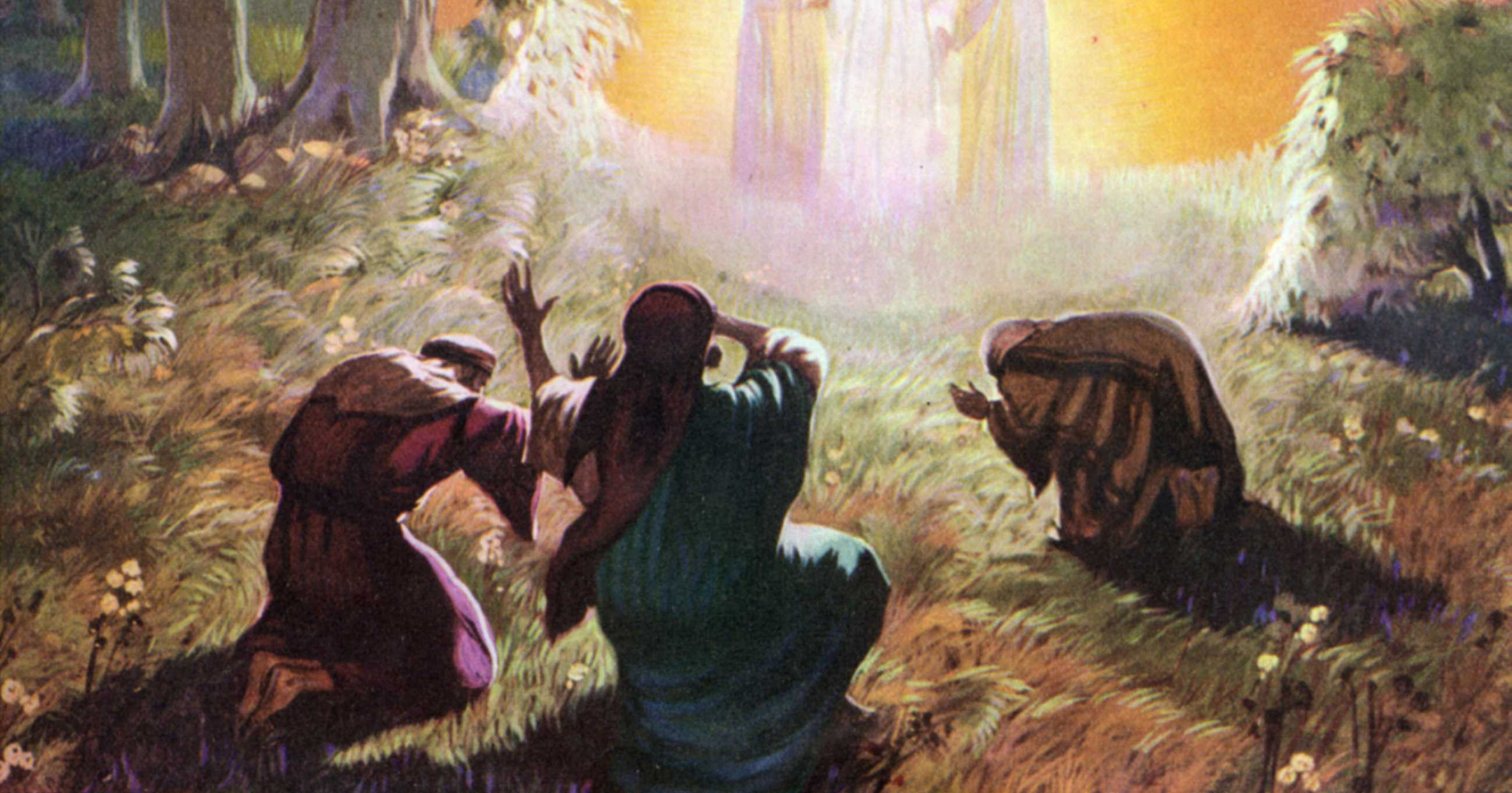Notes on the Notes – February 14, 2021

Transfiguration Sunday
This week’s music:
“Immortal, Invisible, God Only Wise” (VU #264)
“Immortal, invisible, God only wise,
In light inaccessible hid from our eyes,
Most blessed, most glorious the Ancient of Days,
Almighty, victorious, thy great name we praise.
Unresting, unhasting, and silent as light,
Nor wanting, nor wasting, thou rulest in might;
Thy justice like mountains high soaring above,
Thy clouds, which are fountains of goodness and love.
To all, life thou givest, to both great and small,
In all life thou livest, the true life of all,
We blossom and flourish like leaves on the tree,
Then wither and perish; but naught changeth thee.
Thou reignest in glory, thou rulest in light;
Thine angels adore thee, all veiling their sight;
All praise we would render, O help us to see
‘Tis only the splendour of light hideth thee!”
The four verses of this hymn by Walter Chalmers Smith are a description of the glory and omnipotence of God. The hymn, based on 1 Timothy 1:17, was first published in Smith’s Hymns of Christ and the Christian Life (1867). ST. DENIO is a traditional Welsh melody adapted into a hymn tune during the Welsh revivals at the turn of the 19th century. It was arranged by John Roberts (Henllan) and published in the Welsh hymnal Caniadau y Cyssegr (1839).
Hear an up-tempo version of this hymn by Steve Green at: https://www.youtube.com/watch?v=j0_vB1dFtC4
Hear a traditional organ prelude on the melody at: https://www.youtube.com/watch?v=HcWDS1yTkxM
“We Have Come at Christ’s Own Bidding” (VU #104)
“We have come at Christ’s own bidding to this high and holy place,
Where we wait with hope and longing for some token of God’s grace.
Here we pray for new assurance that our faith is not in vain,
Searching like those first disciples for a sign both clear and plain.
Light breaks in upon our darkness; splendour bathes the flesh-joined Word;
Moses and Elijah marvel as the heavenly voice is heard.
Eyes and hearts behold with wonder how the Law and Prophets meet:
Christ, with garments drenched in brightness, stands transfigured and complete.
Strengthened by this glimpse of glory, fearful lest our faith decline,
We like Peter find it tempting to remain and build a shrine.
But true worship gives us courage to proclaim what we profess,
That our daily lives may prove us people of the God we bless.“
This transfiguration hymn is by Carl P. Daw, Jr. (1988). In his commentary on the text, Daw discusses the “comparison between the attitudes and assumptions of the disciples on the Mount of Transfiguration and the expectations of present-day Christians as they gather for worship.” The tune, ABBOT’S LEIGH, which was composed by British hymnologist Cyril Vincent Taylor in 1941.
Hear the tune on piano at: https://www.youtube.com/watch?v=mNPlsM14Bik
“Transfigure Us, O Lord”
“Transfigure us, O Lord,
Transfigure us, O Lord,
Break the chains that bind us;
Speak your healing word,
And where you lead we’ll follow.
Transfigure us, O Lord.
Down from heights of glory into the depths below,
The love of God self-emptied, the love of God to show.
You light the path before us, the way that we must go.
Light for those in darkness, the hungry have their fill,
Glad tidings for the humble, the healing of all ills;
In these we glimpse your glory, God’s promises fulfilled.
Transfigure us, O Lord…
Pardon for the sinner, a shepherd for the sheep,
A drink of living water for all who thirst and seek,
And feasting at your table, the lowly and the least.
To the holy city, Jerusalem, you go;
Your face set toward the ending, the cross to be your throne.
Shall we journey with you and share your Lenten road?
Transfigure us, O Lord…”
This week’s anthem is based on the transfiguration story as told in Matthew 17:1-9, Mark 9:2-10 and Luke 9:28b-36. It was written by Bob Hurd in 2002.
“Open My Eyes” (VU #371)
“Open my eyes, that I may see glimpses of truth thou hast for me;
place in my hand the wonderful key that shall unclasp and set me free.
Silently now I wait for thee, ready, my God, thy will to see.
Open my eyes, illumine me, Spirit Divine!
Open my ears, that I may hear voices of truth thou sendest clear;
and while the wave-notes fall on my ear, everything false will disappear.
Silently now I wait for thee, ready, my God, thy will to see.
Open my ears, illumine me, Spirit Divine!
Open my mouth, and let me bear gladly the warm truth everywhere;
open my heart and let me prepare love with thy children thus to share.
Silently now I wait for thee, ready, my God, thy will to see.
Open my heart, illumine me, Spirit divine!“
Clara H. Scott (1841-1897) provides us with a hymn of consecration that has been sung for over 100 years. The text of “Open My Eyes” was written in 1895 shortly before Scott’s death. Each stanza reveals an increasing receptiveness to the “Spirit divine.” Open eyes lead to “glimpses of truth.” Open ears lead to “voices of truth.” An open mouth leads to sharing the “warm truth everywhere.” An open heart leads to sharing “love to thy children.”
Sing along with the choir at First United Methodist Church in Valdosta, Georgia at: https://youtu.be/71jExPuxRBY

“Forth in Your Name, O Christ” (VU #416)
“Forth in your name, O Christ, we go
Our daily labour to pursue,
You, only you, resolved to know
In all we think, or speak, or do.”
We will be using the opening verse of this hymn from Charles Wesley’s Hymns and Sacred Poems (1749). The tune, CANONBURY, is one of a number of 19th-century hymn tunes adapted from instrumental works by well-known composers. The melody is from Robert Schumann’s Nachtstucke for solo piano. It was first seen as a hymn tune in 1872.
Bonus video:


You must be logged in to post a comment.